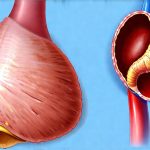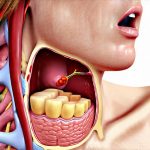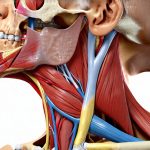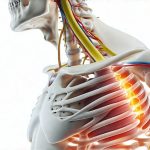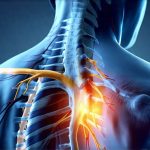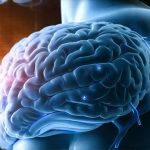Gastroesophageal reflux disease (GERD) and hiccups are both common experiences, often dismissed as minor inconveniences. However, for many individuals, these seemingly separate conditions can become intertwined, particularly after eating. The connection isn’t always obvious; while GERD is well-understood as acid reflux irritating the esophagus, hiccups – those involuntary diaphragmatic spasms – seem to arise spontaneously. Yet, a growing body of understanding points to a significant relationship between the two, especially when triggered by food intake. This article will delve into the mechanisms behind this link, exploring how GERD can cause hiccups and, conversely, how hiccups might exacerbate GERD symptoms, providing insights for those seeking relief from these bothersome conditions.
The experience of post-meal hiccups often feels frustratingly random, but it’s rarely a purely chance occurrence. It’s essential to recognize that the digestive process itself is complex, involving coordinated muscle movements and nerve signals. When digestion isn’t smooth – perhaps due to rapid eating, large meals, or foods that trigger reflux – it can disrupt these processes, potentially leading to both GERD symptoms and hiccups. Understanding this interplay is key to addressing the root causes and finding effective strategies for managing both conditions, ultimately improving post-meal comfort and overall well-being. This isn’t about eliminating either condition entirely (as occasional hiccups are normal), but about mitigating their frequency and intensity when they become problematic or linked to digestive issues. If you struggle with digestion after meals, consider learning how to soothe the gut .
The GERD-Hiccup Connection: How Acid Reflux Can Trigger Spasms
The link between GERD and hiccups revolves around the vagus nerve, a cranial nerve that plays a crucial role in both digestion and diaphragmatic function. When stomach acid refluxes into the esophagus – the hallmark of GERD – it can irritate the esophageal lining. This irritation doesn’t just cause heartburn; it also sends signals via the vagus nerve to the diaphragm. The diaphragm, responsible for breathing, responds with involuntary contractions: hiccups. Essentially, acid reflux acts as a stimulus, triggering the hiccup reflex as the body attempts to respond to perceived irritation or discomfort in the digestive tract.
Furthermore, the esophageal sphincter – the muscle that prevents stomach acid from flowing back up – can be weakened by frequent GERD episodes. A compromised sphincter allows more frequent and prolonged acid exposure, potentially increasing the likelihood of vagus nerve stimulation and subsequent hiccups. This creates a vicious cycle: reflux irritates the esophagus, triggering hiccups, which can sometimes worsen reflux due to changes in abdominal pressure. It’s important to note that not everyone with GERD will experience hiccups, nor will every hiccup be caused by GERD. But for those who consistently find themselves hiccupping after meals, especially when accompanied by heartburn or acid indigestion, the connection is worth exploring. Understanding this can also help you understand the connection between GERD and nausea.
Finally, it’s crucial to understand the role of gastric distention. Large meals, particularly fatty ones, can cause significant stomach bloating (distension). This stretching can also stimulate the vagus nerve and contribute to hiccup formation, even independently of reflux. In individuals with GERD, however, this effect is often amplified because the increased pressure in the abdomen makes reflux more likely, further exacerbating the issue.
Hiccups as a Potential Exacerbator of GERD
While GERD can trigger hiccups, the relationship isn’t always one-way. Hiccups themselves can sometimes worsen GERD symptoms. The forceful contractions of the diaphragm during a hiccup episode create pressure changes within the abdomen. This increased abdominal pressure can push stomach contents upwards, potentially forcing more acid through a weakened esophageal sphincter and leading to increased reflux.
The cyclical nature of this phenomenon – GERD causing hiccups, then hiccups exacerbating GERD – can be particularly problematic for individuals with chronic or severe GERD. It leads to a feedback loop where symptoms are constantly amplified, making it difficult to find lasting relief. This is why addressing both conditions simultaneously is often necessary. Simple strategies like eating smaller meals and avoiding trigger foods can help mitigate the frequency of hiccups and the severity of reflux episodes. Many people with GERD also struggle with sleep disturbances , making a good night’s rest difficult.
Identifying Trigger Foods & Dietary Adjustments
Pinpointing specific food triggers is vital for managing both GERD-induced hiccups and hiccup-exacerbated GERD. Common culprits include:
- Fatty foods: These slow down digestion and increase acid production, leading to more frequent reflux.
- Spicy foods: Capsaicin, the compound that makes peppers spicy, can irritate the esophagus and trigger both heartburn and hiccups.
- Acidic foods: Citrus fruits, tomatoes, and vinegar-based dressings can directly contribute to esophageal irritation.
- Carbonated beverages: The bubbles in fizzy drinks increase abdominal pressure, potentially promoting reflux.
- Caffeine & Alcohol: Both can relax the lower esophageal sphincter, allowing acid to flow back up.
Dietary adjustments aren’t about eliminating all enjoyable foods but rather identifying personal triggers and moderating their consumption. Keeping a food diary – meticulously recording what you eat and any resulting symptoms – is an excellent starting point. Beyond avoiding trigger foods, adopting mindful eating habits can also make a significant difference. This includes:
- Eating smaller, more frequent meals instead of large portions.
- Chewing food thoroughly to aid digestion.
- Avoiding lying down immediately after eating.
- Elevating the head of your bed slightly during sleep.
It’s also helpful to understand the connection between GERD and throat clearing as it can be a symptom experienced alongside hiccups.
Lifestyle Modifications and When to Seek Medical Attention
Beyond dietary changes, several lifestyle modifications can help manage GERD and reduce associated hiccups. Maintaining a healthy weight is crucial, as excess abdominal fat puts pressure on the stomach. Regular exercise – excluding strenuous activity immediately after eating – promotes overall digestive health. Avoiding tight-fitting clothing can also minimize abdominal pressure. Stress management techniques like yoga or meditation may also be beneficial, as stress can exacerbate GERD symptoms and potentially trigger hiccups.
However, if hiccups are persistent, severe, or accompanied by other concerning symptoms (such as difficulty breathing, chest pain, or vomiting), it’s essential to seek medical attention. While most cases of post-meal hiccups are benign, they could sometimes indicate an underlying medical condition requiring diagnosis and treatment. Similarly, GERD that doesn’t respond to lifestyle changes or over-the-counter medications should be evaluated by a healthcare professional. They may recommend further testing to rule out complications or prescribe stronger medications like proton pump inhibitors (PPIs) to reduce acid production. If you experience these symptoms alongside hiccups, it is important to explore GERD and asthma as well. Remember, self-diagnosis and self-treatment can be risky; consulting with a doctor ensures accurate diagnosis and personalized management strategies.
It is important to reiterate that this information is for general knowledge and informational purposes only, and does not constitute medical advice. It is essential to consult with a qualified healthcare professional for any health concerns or before making any decisions related to your health or treatment. The connection between GERD and hiccups can be complex, so seeking advice from a medical professional is always recommended.


